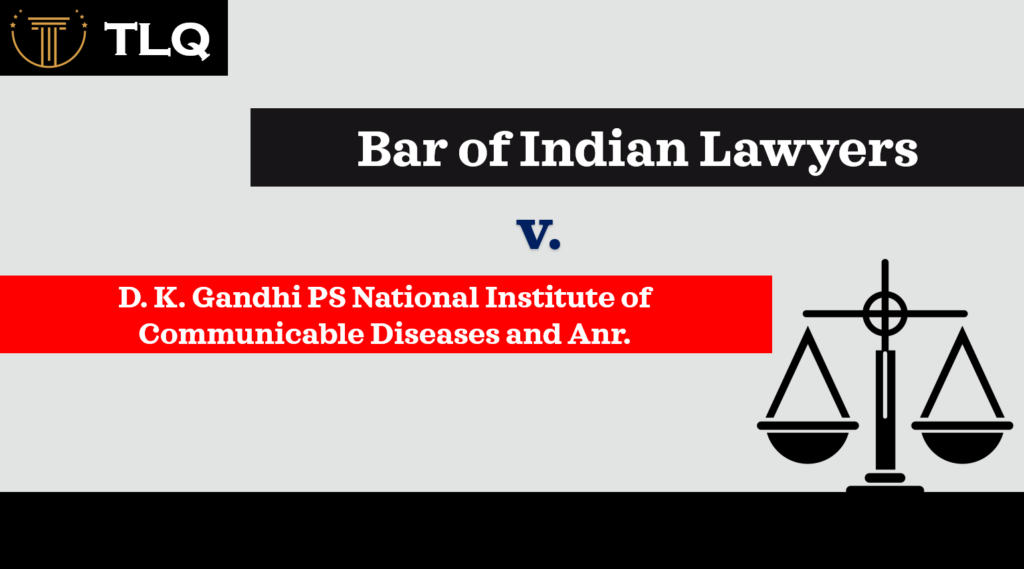Published on: 12th November 2025
Authored by: Shivanee Raj
The ICFAI University, Dehradun
Court: Supreme Court of India
Bench: Chief Justice of India DY Chandrachud, Justice JB Pardiwala and Manoj Misra
Date of Judgement: 5th November 2024
Relevant Provisions: Article 14, Article 21, Article 21A and Article 30 of Constitution of India
FACTS:
The Uttar Pradesh Madarsa Act’s legitimacy is at the centre of the current case. By creating requirements for curriculum, tests, and teaching qualifications, the Act sought to govern Madarsa education. The Act was ruled unlawful by the Allahabad High Court for violating secularism and violating Articles 14 and 21A of the Indian Constitution. A regulatory board was established to supervise Madarsa education by the Uttar Pradesh Madarsa Act. It concentrated on teacher qualifications, exams, and curriculum design. The Act offers Madarsa pupils a high-quality education that is in line with both religious beliefs and societal demands.
The Act was declared invalid by the Allahabad High Court. According to the Court, it denied Madarsa kids a comprehensive education in violation of Article 21A and breached secularism.
The High Court ruled that the Act breached Articles 14 and 21A of the Constitution and favored a religious minority organization. Under Entry 66 of List I, provisions governing higher education specifically, Fazil and Kamil degrees were contested as being ultra vires since they conflicted with the University Grants Commission (UGC) Act.
The Allahabad High Court’s decision was challenged by petitioners, including Anjum Kadari, who argued that Madarsas teach modern subjects like science, arithmetic, and social sciences in addition to religious education.They argued that there was no violation of the Act. secularism, but only controlled minority schools’ instruction. According to Entry 25, List III of the Seventh Schedule, the case also raised the question of whether the State legislature had the power to regulate Madarsa education and whether certain Madarsa Act provisions conflicted with the 1956 University Grants Commission Act (UGC Act), which regulates India’s higher education system.
ISSUES RAISED?
- Does the Madarsa Act go against the Constitution’s fundamental secularism principle?
- Were the provisions of the Act in violation of the Constitution’s Articles 14, 21A, and 30?
- Despite operating under Entry 66 of List I, does the State Legislature have the power to pass the UGC Act under Entry 25 of List III?
- Whether it was incorrect for the High Court to invalidate the Madarsa Act in its entirety instead of cutting off just the parts that are unconstitutional?
CONTENTIONS:
(Petitioner’s Contention)
According to Article 246 of the Indian Constitution, as well as Entry 25 of List III of the Seventh Schedule, the State Legislature has the authority to pass laws governing Madarsa education. Madarsa regulations pertaining to curriculum, instruction, educational standards, assessment procedures, and teaching qualifications are the main focus of the Madarsa Act.The constructive idea of treating all religions equally is known as secularism. The enactment of law for regulating secular activities of minority institutions or prescribing standard of education is consistent with Article (25-30). They relied on the case of S. R Bommai v UOI wherein secularism is the positive concept of equal treatment of all religions. Minority and linguistic rights are protected in Articles 25–30, which also protects the right to create and administer educational institutions.
Madarsa teach religion-based education rather than religious instruction. Article 28 prohibits religious instruction in educational institution wholly maintained out of the state fund. Madarsa impacts education based on foreign curriculum such as Mathematics, Social Science and Science. Article 28 does not bar the state from funding school providing religious education.
The fundamental right to free and compulsory education for children aged 6 to 14 is recognized by Article 21A.Section 15 of The Right to Education act (2009) excludes Madarsa from the purview of the legislation. Therefore, the fundamental right of minorities to create and run educational institutions cannot be violated by state legislation enacted in accordance with Article 21A.
The future of more than 12 lakh students studying in Uttar Pradesh’s Madarsas will be impacted if the Madarsa Act is struck down because it will leave a legislative void and cause the Madarsas to become deregulated. Furthermore, the High Court’s order to evacuate Madarsa pupils in order to regulate schools will essentially close all Madarsas in the state, which is against Article 30 of the Indian Constitution.
(Respondent’s contention)
The act does not make any provisions to impart secular subjects as part of the curriculum and is the measure undertaken by the state to recognize and regulate “Religious Instruction” traceable to a particular community.
Article 28 prohibits institutions which received funds from the state from imparting “religious instruction”. Thus, as a corollary, the state cannot seek to regulate and thereby, recognizes religious instruction.
The Preamble which specifies that India is a “secular” republic, Article 21- A, Article 25, 28, 30 and 41 all point to the persuasive principle of secularism underlying the Indian Constitution. The state controlling religious instruction is resisted by this principle.The act’s strike would merely stop the board from operating and, as a result, the state’s acknowledgment of the “religious instruction.”
The education provided in the Madarsas and their existence would continue to be protected by Article 30 in the Indian Constitution.
In Entry 25 of List III of the seventh schedule, the term “education” must be interpreted to imply “secular education” and cannot refer to religious teaching.
JUDGEMENT
The principle of secularism, which advocates treating all religions equally, was upheld by the Honourable Supreme Court. The Constitution’s Articles 25 to 30 demonstrate “positive secularism,” which calls on the government to respect religious tolerance. In addition to guaranteeing that the State maintains its neutrality in religious affairs, the court ruled that regulating Madarsa education would be a step toward protecting minority educational rights.
The court made it clear that common laws like the Madarsa Act are not covered by the Basic Structure Doctrine; rather, it only applies to constitutional changes. It would be equivalent to changing the Constitution to use the basic structure concept to determine whether a statute is valid. To minimize legal ambiguity, the courts should eschew general notions like democracy, federalism, or secularism when evaluating ordinary laws and instead concentrate on legislative competence and adherence to fundamental rights.
According to the court, madarsas are protected by Article 26 of the Constitution as religious institutions, which permits religious organizations to create and run institutions for philanthropic and religious reasons.The court pointed out that although children must receive an education under Article 21A, the RTE Act should not be applied to minority institutions in a way that would compromise their autonomy under Article 30.
The ruling confirmed that equality and secularism are inextricably intertwined, and that the state must treat all of its citizens equally regardless of their religious beliefs in order to achieve true equality.It concluded that, as guaranteed by Article 30, religious organizations, including madrasas, have a basic freedom to run their own affairs. State regulation is acceptable, nevertheless, provided that it doesn’t compromise the minority status of an institution.
In conclusion, the quality of education in Madarsas that have been authorized by the Board to offer Madarsa instruction is governed by the Madarsa Act.The Madarsa Act is consistent with the State’s proactive obligation to ensure that students attending authorized Madarsas attain a level of competency that will allow them to support themselves and make contributions to society. The RTE Act and Article 21-A must be interpreted in a way that respects religious and linguistic minorities’ freedom to create and run the educational institutions of their choosing. With the State government’s approval, the Board may issue regulations to ensure that religious minority institutions offer secular education of the required standard without compromising their minority identity. The Madarsa Act dates back to Entry 25 of List III and falls under the legislative purview of the State legislature.
However, because they clash with the UGC Act, which was passed under Entry 66 of List I, the Madarsa Act’s clauses that aim to govern higher education degree such as Fazil and Kamil are invalid.
RATIONALE
About Secularism
The court looked at our constitution’s secularism. Secularism is one facet of the equal rights principle. Consequently, the equality code forbids the state from integrating religion into any of its secular endeavors. Equal treatment of everyone is only a myth, though, until the government actively works to change that. As a result, the state has some positive duties to treat everyone equally, regardless of their faith, religion, or views. The other aspect of secularism, which is the state’s practice of religious tolerance, is covered in Articles 25 to 30.
The State may recognize educational institutions that offer religious teaching in addition to secular education without violating Article 28.
Regarding the use of the basic structure theory in ordinary law
The Supreme Court ruled in SR Bommai v. UOI that secularism is a fundamental aspect of the Constitution. This theory which has its roots in the Kesavananda Bharati case, maintains that no amendment can change or eliminate some of the Constitution’s essential elements. Although it has historically been used for constitutional amendments, recent rulings have shown that its applicability to regular legislation is restricted.
RATIO DECIDENDI
The Madarsa Act was seen to be mostly constitutional because it guaranteed minority institutions high-quality education without violating their Article 30 rights.
Higher education regulations, including those pertaining to Fazil and Kamil degrees, were overturned because they were in violation of the UGC Act.
OBITER DICTA
The Court stressed the idea of positive secularism, which calls on the government to strike a balance between the rights of minorities and secular educational requirements.
FINAL DECISION
The Allahabad High Court’s verdict was overturned by the Supreme Court, which said that The Madarsa Act is legitimate under the constitution. Nevertheless, it ruled that the rules pertaining to Fazil and Kamil degrees were incompatible with the UGC Act, which sets forth the prerequisites for higher education in India, and thus annulled them.A legitimate use of legislative authority is the Madarsa Act under Entry No 25, List III, since it governs education and does not enforce any religion guidance. The state has the right to recognize and regulate Madarsas, as long as they adhere to norms for educational quality. In overturning the Allahabad High Court’s verdict, the Supreme Court upheld the legitimacy of the Uttar Pradesh Madrasa Education Board Act of 2004.
REFERENCES
BOOKS:
M.P. Jain, Indian Constitutional Law 1042–1048 (8th ed. 2023)
H.M. Seervai, Constitutional Law of India vol. 2, at 1543–1550 (4th ed. 2019)
V.N. Shukla, Constitution of India 312–318 (14th ed. 2020)
S.P. Sathe, Administrative Law 355–370 (7th ed. 2017)
D.D. Basu, Commentary on the Constitution of India vol. 2, at 1912–1920 (9th ed. 2018)
STATUTES:
National Security Act, No. 65 of 1980, §§ 3–14, India Code (1980).
Code of Criminal Procedure, No. 2 of 1974, §§ 56–60, 167, India Code (1973).
Indian Penal Code, No. 45 of 1860, §§ 341–342, India Code (1860).
Right to Information Act, No. 22 of 2005, § 8(1), India Code (2005).
India Const. arts. 21–22 (1950)
JOURNAL ARTICLES:
Ananya Singh, Preventive Detention and Constitutional Safeguards: A Critical Study Post–Anjum Kadari, 46 Indian L.J. 112 (2024).
Rajeev Dhavan, Due Process in Preventive Detention: Lessons from Anjum Kadari, 33 Nat’l L. Sch. India Rev. 89 (2024).
Upendra Baxi, Judicial Review and Preventive Detention after Anjum Kadari, 52 Econ. & Pol. Wkly. 25 (2024)
CASES:
Anjum Kadari v. Union of India, (2024) INSC 831 (India)
B.R. Bommai v. Union of India, (1994) 3 S.C.C. 1 (India)




